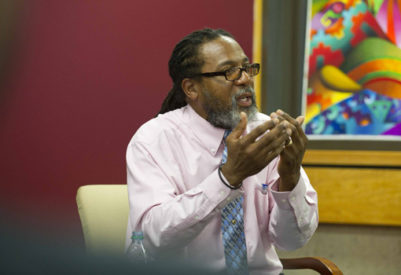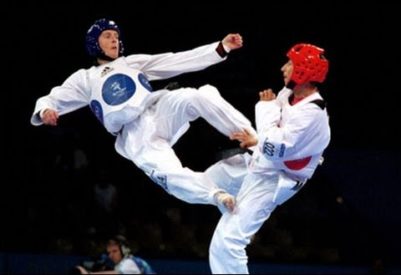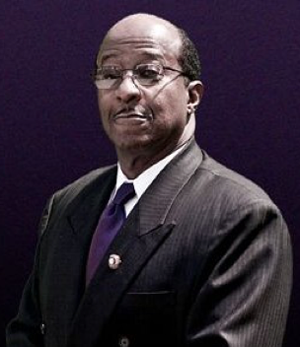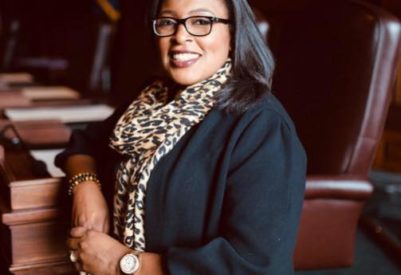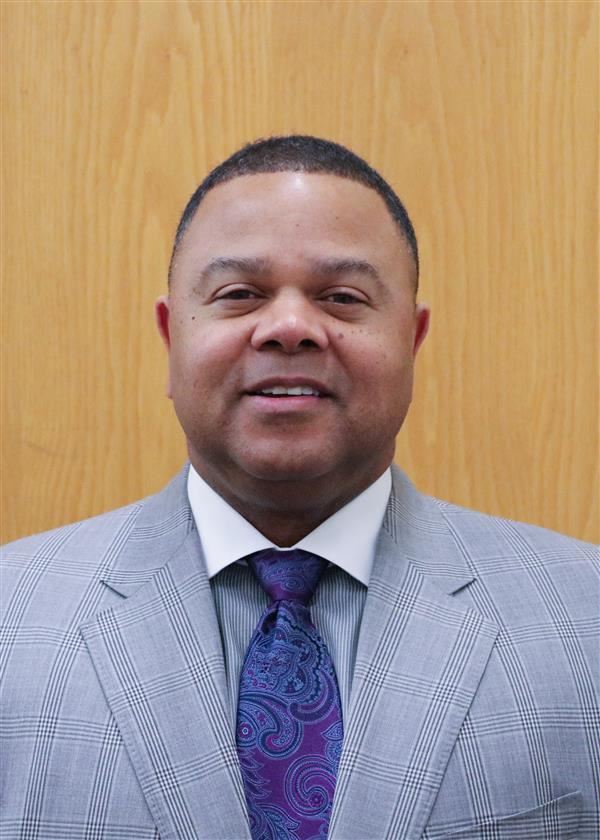
Submitted by James Patterson, Rochester City School Board Commissioner
I am writing today to build bridges and relationships. This piece is also a call to dismantle years and decades of hurdles and barriers in this community that have perpetuated and stifled our children’s educational learning process and success.
I write to challenge and/or dismantle the “status quo” and make this community aware of the current system’s opposition to change.
It is for this very reason that I respectfully draw your attention to how prior boards and our current actions, or lack thereof, are barriers to our children’s educational success.
Additionally, there is a lack of respect for selective board members. My colleague’s constant depiction of division is not only unhealthy, but a poor example for our administration, our community, and especially our youth. Our actions and tone of escalation are damaging and toxic. There appears to be limited structure, rules, or accountability, and as a result, interactions are often unacceptable.
There’s a moment when you have a choice to either remain silent, or to stand up against the status quo and speak in an effort that allows our community to hear your concerns as an elected official. Though the Rochester City School District’s current administration and my school board colleagues have made positive strides in the direction of change, a lot remains uncertain. Most agree that data is extremely important, that it depicts system failures and areas of concern. One area that I have personally chosen to illuminate, is the administration’s failure to prepare our students for graduation and college readiness.
Additionally, there is a lack of support for Career and Technical Education (CTE) and financial literacy. Whether intentional or not, the RCSD has failed to be open and honest with parents by inflating grades and graduation rates. We have failed to prepare our students for their future by being less than truthful about their education. The statistics depict that our students are underperforming, reading well below grade level, and currently performing well below their suburban and statewide counterparts on NYS exams and regents.
Possessing grade level performance and skills to read, write and comprehend are essential for our students to learn, grow, and move forward. It is also important in the early stages of growth that our children not only be able to read, but of equal importance, be read to. We’re also aware that the first three years of a child’s education is a critical stage for social and emotional learning and growth.
The message that I continue to hear is we’re all responsible for student outcomes and necessitates a “village” approach in educating our youth. This includes the school’s administration, board members, teachers, psychologists, social workers, counselors, parents, community members, leaders, and stakeholders. One must ask oneself, what then is the downside of welcoming reading guests, such as myself, in our schools?
The questions remain, knowing the importance of reading early in a child’s life, why then was the prior reading and writing specialist program dismantled? Personally, why have walls been constructed and new policies created that make it difficult for a person of color, an elected official and school board member, to voluntarily read to our K-6 students? So, it begs the question, are the children in our schools truly the priority? I believe we are to view our students as gifts and do all we can to ensure their success.
Community statistics depict numerous pockets of poverty, single-mother family and fatherless homes, lack of black/brown role models and mentors, and lack of black/brown male teachers who students can identify with. When I attempted to engage myself, by offering to volunteer my time to read to elementary school students, I was criticized and my character attacked by people that resembled myself. I was left with a feeling of being marginalized, not allowed to participate on the “journey”. My presence and demeanor is often characterized as threatening, and the way I express myself is confrontational.
My experience is that educated black professionals aren't allowed to conduct themselves in the same manner as our white counterparts. The confident way we carry ourselves or the manner in which we “approach” any given situation or disagreement is highly scrutinized. I am not a docile black man but have been told that I can’t speak “directly” to subordinates to send a message of clarity, candidly leaving no question of the expected outcome(s).
In 2022, I am subjected to demeaning words and phrases, statements often heard and documented in history books during the Jim Crow Era. I have been told, “Black men have to talk differently to white women.” In addition, I’m personally harassed and threatened, “Every time you jump out there, I’m going to be on your neck,” and falsely accused of bringing a weapon into a board meeting
As part of this community and board liaison to a K-6 neighborhood school building, I’m advised by the building principal that my presence to read to our students is “disruptive”, a hindrance to students' learning. In response, there is an issue with my “approach” when advocating for our children. Can anyone question that reading is quality and supportive instruction, that value is added when students are read to. I’m subjected to verbal assaults both in person and in private settings.
The same people who are critical of me are the same people who make racist statements, often use inappropriate and profane language during meetings, speak disrespectfully to colleagues, of our teachers, parents, and the public. School board officials and the administration speak of equity, diversity, and inclusion, but often fail at modeling in these areas.
In closing, I commit myself to always doing what is in the best interest of our students. My hope is that through my transparent heartfelt words and personal feelings, that my colleagues, the acting superintendent, his cabinet, RCSD staff, our students, family members, the community, its leaders and stakeholders will begin to see the ineffectiveness of our decisions as school board officials.
In unity, we need to practice forgiveness that begins with grace, build relationships, mend/build bridges, and acknowledge the presence and severity of cracks in our foundation and admit that we, as a board, are in desperate need of repair.
Lastly, hate will take you nowhere, but compassion will take you around the world and back. My prayer for this board is that we will begin to invite all along on this journey of reconstruction. Frederick Douglas wrote, “It’s easier to build strong children than to repair broken men.” We must take heed to those words. Our students deserve better!
James Patterson, Commissioner
Email: [email protected]
Board Liaison to: OACES Program, Youth and Justice Program, Enrico Fermi School No. 17, Charles Carroll School No. 46, Helen Barrett Montgomery School No. 50, Flower City School No. 54 Term Expires: December 2025
Current Board Committee Chair Assignment: Audit Committee
James L. Patterson, Sr. was raised in Lockport, NY and relocated to Rochester, NY in 1985. Mr. Patterson attended Niagara County Community College where he earned his Associate degree in Criminal Justice. Immediately after college, he was hired by the Niagara County Sheriff’s Office Road patrol becoming the first black law enforcement officer in Niagara County. James later transferred to the Monroe County Sheriff’s Office initially assigned to the VICE Unit and later road patrol.
In 1989, Mr. Patterson was added to the ranks of the New York State Police, where he spent the remainder of his career as a Trooper and Investigator, retiring after a 27-year tenure in the field of law enforcement. Having pursued his undergraduate degree from Rochester Institute of Technology majoring in Criminal Justice and minoring in Business, James decided to pursue a graduate degree and attended SUNY Buffalo State, where he majored in Education.
His educational journey includes time as an Advisor in the Doorway to Success Program at Monroe Community College, an initiative where he provided academic support, motivation, and guidance to Black and Latino males during their acclamation to college life. James has also taught at BOCES, the Rochester City School District, Nativity Preparatory Academy, and is currently employed at SUNY Brockport’s REOC where he is a N.Y.S. Certified Instructor and provides instruction to Security Guards and Teacher Assistants.
Mr. Patterson is the former Executive Director of Rochester Youth for Christ where he supported and mentored city youth. He presently serves on the Mayor’s Board of Ethics Committee, the Commission on Racial & Structural Equality (RASE) and the United Christian Leadership Ministry (UCLM) Police Reform Proposals Committee. James is a newly elected official and Commissioner for the Rochester City School Districts Board of Education.


